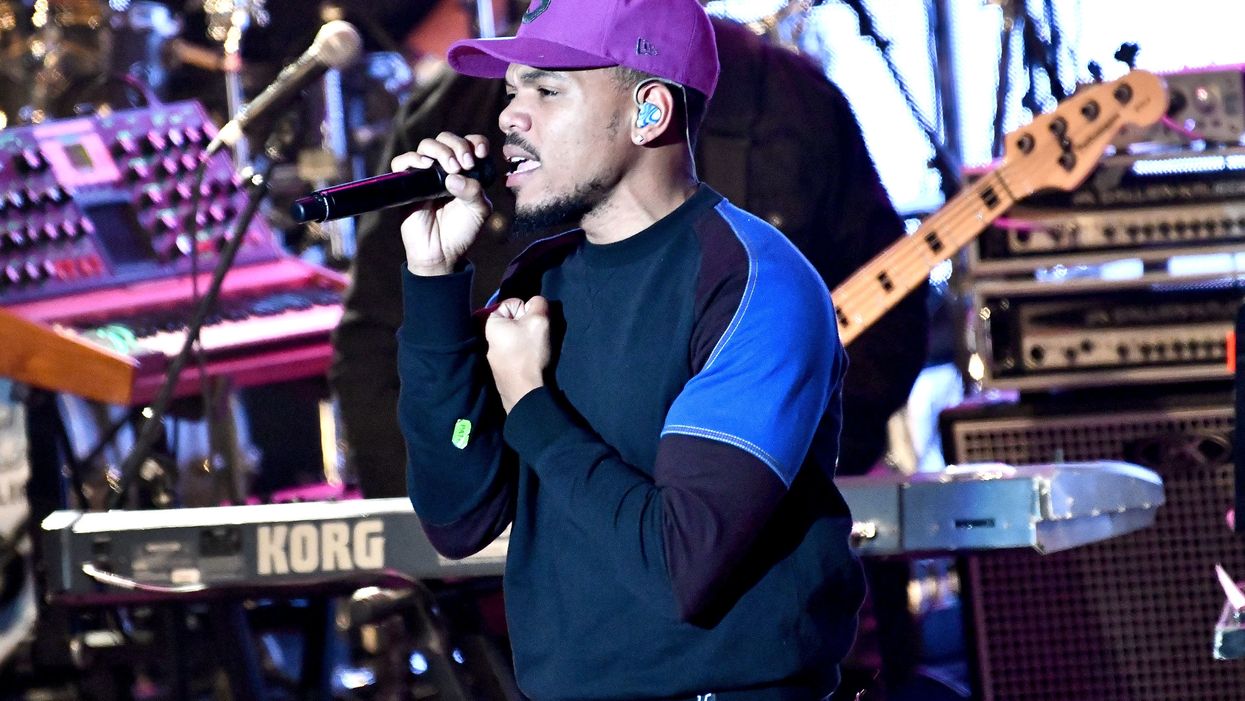
Chance the Rapper performs at the Mac Miller: A Celebration of Life benefit concert on Oct. 31, 2018, in Los Angeles. (Photo by Scott Dudelson/Getty Images)

A group of rappers submitted a brief to the Supreme Court
In 2014, a Pittsburgh rapper was convicted of issuing terroristic threats and intimidating witnesses with violent rap lyrics that specifically targeted police officers who had arrested him in the past.
The rapper, Jamal Knox (stage name Mayhem Mal), is still in prison. His lawyers are appealing the convictions related to his lyrics, saying they were never meant to be taken literally as threats.
His case will now go before the federal Supreme Court, which will have to decide whether the lyrics to Knox's song "F*** the Police" are protected under the First Amendment, The New York Times reported.
Knox was arrested in 2012 for gun and drug possession by Pittsburgh Police Officer Michael Kosko and Detective Daniel Zeltner. Both were scheduled to testify against Knox in court regarding the charges.
While the charges were pending, Knox and the co-defendant in the case, Rashee Beasley, recorded "F*** the Police." Here are some key lyrics that contributed to the conviction on threat charges:
"This first verse is for Officer Zeltner and all you fed force b****es
And Mr. Kosko, you can s*** my d*** you keep knocking on my riches"
"I keep a forty on my waist, that'll wet you like a mop n***a
Clip filled to the tippy top with some cop killas
F*** the police, they bring us no peace
That's why I keep my heat when I'm roamin' through these streets"
The Pennsylvania Supreme Court upheld the conviction, ruling that there was proof Knox intended to issue threats.
A group of rappers, including big names like Chance the Rapper, Meek Mill, 21 Savage, Fat Joe, Killer Mike and Yo Gotti, filed a brief in the case, which argued that Knox was convicted by people who lacked an awareness of rap music.
"[The brief] illustrates how a person unfamiliar with what today is the nation's most dominant musical genre or one who hears music through the auditory lens of older genres such as jazz, country, or symphony, may mistakenly interpret a rap song as a true threat of violence and may falsely conclude a rapper intended to convey a true threat of violence when he did not," the brief reads.
Knox's lawyer, R. Stanton Jones, also claimed that rap music by black artists is more likely to being misinterpreted than music of other genres, or even music by white rappers such as Eminem, who has a catalogue of extremely and intentionally violent and offensive lyrics.
"It's an alarming trend, often with devastating consequences for the young men of color who are almost always targeted in these cases," Jones said, according to The New York Times.
(H/T Vice News)